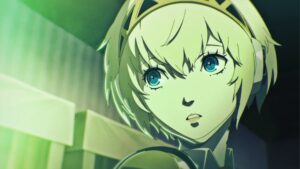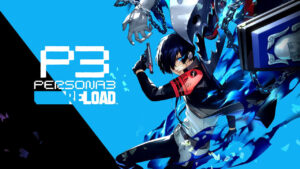The Avengers: Endgame of TEKKEN
Disclaimer: This review was originally published through EXOSIA Project.

Being a fan of the franchise, this iteration is one that I’ve been waiting for a long time since the very first time it was teased—starting with the TEKKEN Kazuya Ending FMV transitioning to the modernized version of the smiling Kazuya. I’m sure a lot are looking forward to the next decade of TEKKEN with the newest installment, TEKKEN 8.
This is JJ-kun of EXOSIA Project bringing you my review of TEKKEN 8!

After almost a decade of TEKKEN 7, it was about time that we moved on to the next. With so many DLC collaborations of the last, there’s just a lot being asked for TEKKEN 8 but thus far, I’d say it’s living up to expectation. TEKKEN 8 is a direct sequel to TEKKEN 7, published and developed by Bandai Namco Studios, with the help of ARIKA. This also starts the franchise’s move to Unreal Engine 5, rather than the previous Unreal Engine 4 which was used in TEKKEN 7.

TEKKEN 8 directly follows the ending of TEKKEN 7 where Kazuya Mishima successfully removes the existence of Heihachi Mishima leaving everything to Jin Kazama to confront and end the years-long family feud between the Mishimas.
Another thing to note here is that Jin is presented as the main protagonist of the game, which is really interesting since, if you’re following the franchise’s story, Jin was literally the one who started a world war that caused a lot of death and suffering throughout the world… but hey, he’s the lesser evil than the two and is literally the only one who can directly face Kazuya, so I guess…
From TEKKEN 3 up until the start of TEKKEN 8, Jin still has no control over the Devil Gene and yet Kazuya does which leads to Jin’s defeat when he faces off against his father. Unfortunately, though, this caused Jin to be unable to summon the Devil’s power and go off on a journey to regain its power and finally defeat Kazuya.
What’s interesting here is the story presentation of this game is the strongest in the franchise, where everyone is affected—not to say that the previous issues presented didn’t involve everyone in the world, just that this time, it’s in a bigger scale—almost everyone in the base roster cast of TEKKEN 8 is included in the story, whether minor or major role in comparison to previous iterations where only the important ones are included. This time, however, there’s a lot more at stake in The King of Iron Fist Tournament since if you lose, not only will he eradicate you but your country as well… and the people are cheering and happy. Talk about an actual reflection of today’s society, amirite?
The game’s story concluded the Mishima Family saga very well and very well thought-out as well, and honestly, my only problem with the story is that it’s severely too fast-paced for my liking. I get it, a story mode isn’t really the focus of a fighting game, but hey, this game is concluding a 30-year story. Though, at the very least, TEKKEN 8’s story mode is better than most fighting games’ story, story delivery, and execution, and was a huge improvement to TEKKEN 7’s story mode… one with a very boring 3rd-person journalist who isn’t even relevant to the story.
I’d also like to say that the developers and the TEKKEN TEAM did an awesome job is hiding intricate details, along with musical callbacks throughout the franchise, which will cause surprises when you’ve actually played the story. Even I was not prepared when I saw the changes from the trailer to the final game and it gave off a totally different vibe. It was a beautiful experience. Directors of modern media should follow this, and not show almost everything in a trailer that you don’t even have to watch a film to know what happens.

In terms of graphics, I wouldn’t say that there’s a huge jump from TEKKEN 7 to 8. I mean, yeah there were improvements, some characters even aged well, like Lili and Asuka—who by the way looks so gorgeous in this game compared to TEKKEN 7—but most of these aren’t something you’d give extensive noticing to since the focus of the game is the gameplay and not the graphics; in fighting games, performance is given priority over graphics.
However, I have to give notice to the effects and the background of the game that is amazingly done, giving more oomf and emphasis on each attack a character gives—and definitely gives off huge confidence in players… but this improvement unfortunately also means that the game is superbly demanding compared to the previous iteration.

I feel like the game is lacking in the music department… or maybe it’s just because I’ve played the Closed Network Test (CNT) and Closed Beta Test (CBT) that when the full game was released, it was as if I’ve already heard and is done with the music of TEKKEN 8. Albeit, of course, there were a few more that got added since the CBT and CNT are, obviously, not full games.
What I like about it though is the execution part of each soundtrack. Though it was limited, they knew how to utilize it properly. Knowing when to use what and where makes it marvelously impactful; that is the redemption point of TEKKEN 8’s music. They also try to cover the lack of TEKKEN 8 music by including a jukebox, previously exclusive to PlayStation users, to everyone that has every TEKKEN original soundtrack to date—and you can even make your own playlist to play on each map.

The core gameplay of TEKKEN 8 isn’t any different from the previous iterations; still a fighting game with a 3D environment. However, the biggest change here would be the addition of the Heat System which makes it apart from other TEKKEN games. The director of the game, Katsuhiro Harada, said that if there’s a word that describes TEKKEN 8, it’ll be “aggressive”, and I agree. The Heat System changes a lot of animation and frames of a lot of useful moves and tools of characters which allows them to just trap opponents in the block string—a condition where you are forced to just block your opponent’s attacks, consecutively. There’s also the Special Style which allows newer, or non-fighting game, players to enjoy the game with button mashing to assist the players in doing combos.

In addition to this, I also like the fact that this is the most beginner-friendly game in the franchise, aside from having the Special Style. See, TEKKEN, in any of its iterations, heavily favors those who played the previous games since your fundamentals are: (1) relies on legacy experience, (2) highly different from any other games. I say this because they included another single-player mode in the game; Arcade Quest.
This mode has a story of its own, but is YOUR story. Throughout the story, you are taught the basics of the game up to the more advanced techniques and mechanics available in TEKKEN 8. It definitely is a welcomed addition to the game. Although, I’d say ArcSystemWorks does a better job at this, making it brief and concise, in comparison to the Arcade Quest which may take up a few hours which may lead to a newer player bored… but it really does its job in holding your hand and making sure you learn properly before you can proceed.. so, pros and cons, I guess.

There is also the return of TEKKEN BALL which is a fan favorite from TEKKEN 3 and the game’s character customization. I have to say, TEKKEN 8 character customization leaves me a bit dissatisfied as the available wardrobe and options are quite limited in comparison to previous games. Despite that, though, people took the saying “limitation only breeds creativity” to heart as people were still able to make stunning customizations but really it wouldn’t hurt to have more options. Furthermore, there are also the character episodes where we’re presented with different what-if scenarios, though some are canon.

For a modern game to include multiple modes that you may enjoy offline or solo, it is quite a surprise, considering most modern fighting games only include 2 offline modes, story and versus, and online versus for the most part. I mean, we’ve received more in the earlier days of video gaming but hey, I’ll take what I can and it’s already more than most nowadays. I can’t say it’s cheap though since it’s quite expensive.
TEKKEN 8 launched with $69.99, $99.99, and $109.99 price tags for Standard, Deluxe, and Ultimate editions and for a general consumer, that’s a little bit too much—but if you’re a fan, like I am, does the price really matter that much? It’s worth it, just for the story’s conclusion alone. On the flip side, like Capcom, Bandai Namco are very generous with sales and I’m sure we’ll be able to see the game on sale in a few months.

Overall, as a fan, the game is definitely a must-get. For those wanting to get into TEKKEN, this is the game to start with. There’s also the History section in the gallery if you want to be caught up to speed with the story before you start TEKKEN 8’s. There’s so much to unload with this game, from the story to its gameplay, and I’m enjoying and savoring every moment.
If I have any problems with the game, it’s that it could be optimized better for PC.


